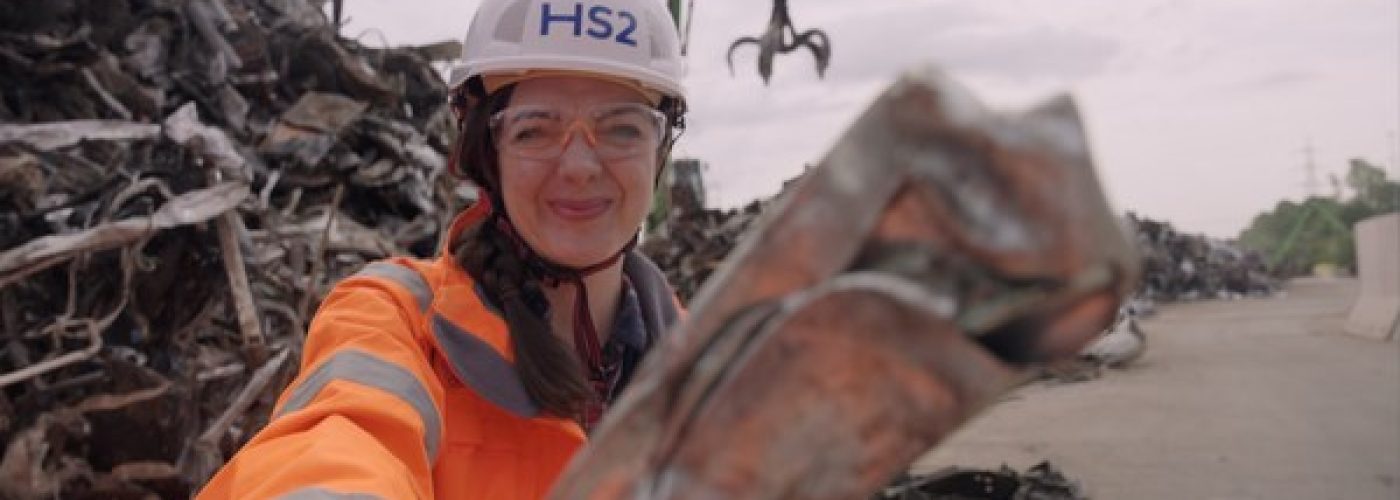Old car parts, radiators and shopping trolleys are being given a new lease of life in the construction of Britain’s new railway – HS2. The UK recycled steel initiative, which is helping HS2 to cut carbon in construction, is also supporting hundreds of jobs in South Wales, Yorkshire and Nottinghamshire.
Over the last two years, the UK steel industry has benefitted from a pipeline of orders worth over £170m from HS2’s construction partners building the first phase of the high-speed railway linking London and the West Midlands.
As the backbone to HS2’s two-decade construction programme, over one million tonnes of steel are forecast to be needed for standard construction materials, a further 200,000 tonnes for steel rail, switches and slabtrack, and an additional 15,000 tonnes for rolling stock.
Visiting CELSA Steel UK’s Cardiff headquarters, a UK steel provider to HS2, Ruth Todd Chief Commercial Officer at HS2 Ltd said:
“HS2’s vast demand for steel over the next 20 years, as we extend Britain’s new railway to Manchester and the East Midlands, is a lifeline for this vital UK industry and stimulates future growth potential.
“As I’ve seen here today, HS2’s supplier contracts with CELSA Steel UK are already supporting hundreds of jobs in Cardiff, Yorkshire and Nottinghamshire. Furthermore, the recyclable and retraceable products they supply aligns to our commitment to cut carbon in construction, as we strive to ensure HS2 is one of the most environmentally responsible infrastructure projects ever delivered in the UK.”
CELSA Steel UK is the UK’s largest manufacturer of steel reinforcement and a driving force behind new sustainability standards for the industry. 750 staff work at the two Cardiff-based sites where recycled scrap metal is melted in an electric arc furnace to produce 80% less carbon emissions than basic oxygen steelmaking. The molten steel is then turned in to billets and rolled to make reinforcing bar (rebar) for use on HS2 construction sites.
CELSA Steel UK transports high volumes of its materials and products by rail, not road, for the bulk of their journeys, including the scrap metal collected from its scrapyards in Cardiff, Swansea, Rotherham, Bristol and Sunderland.
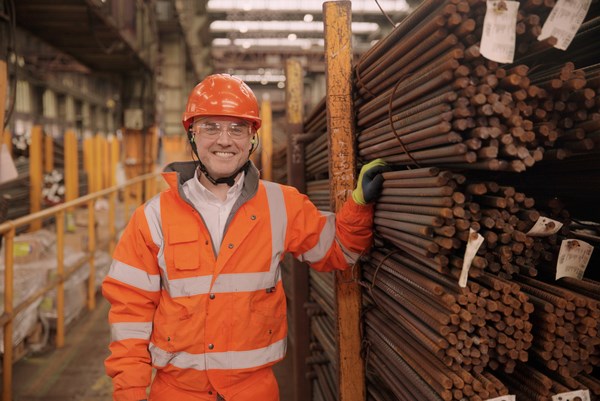
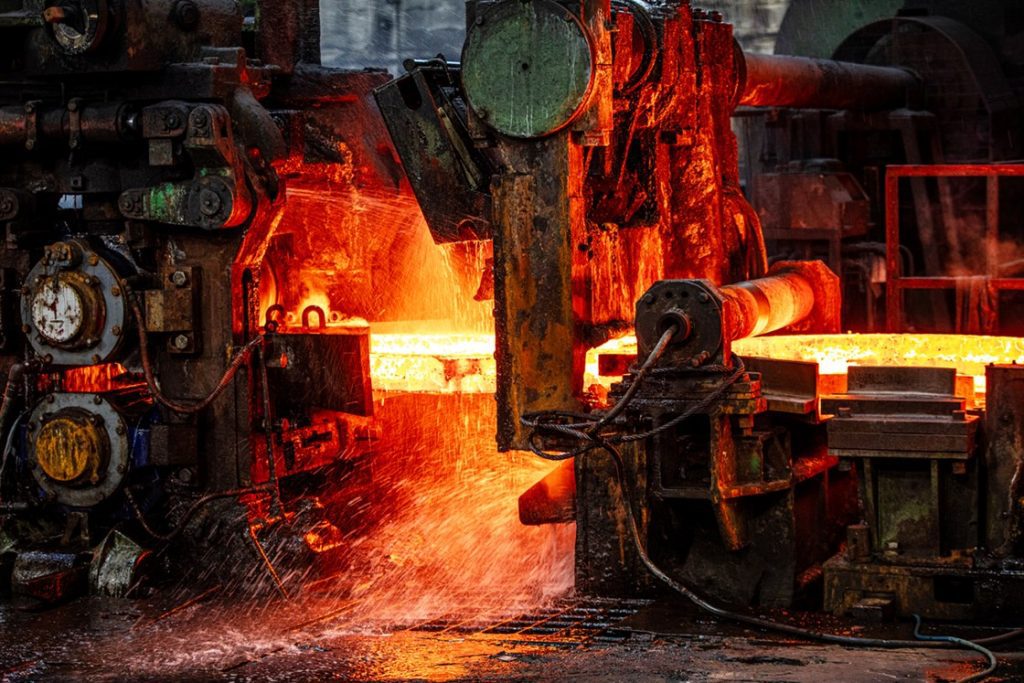
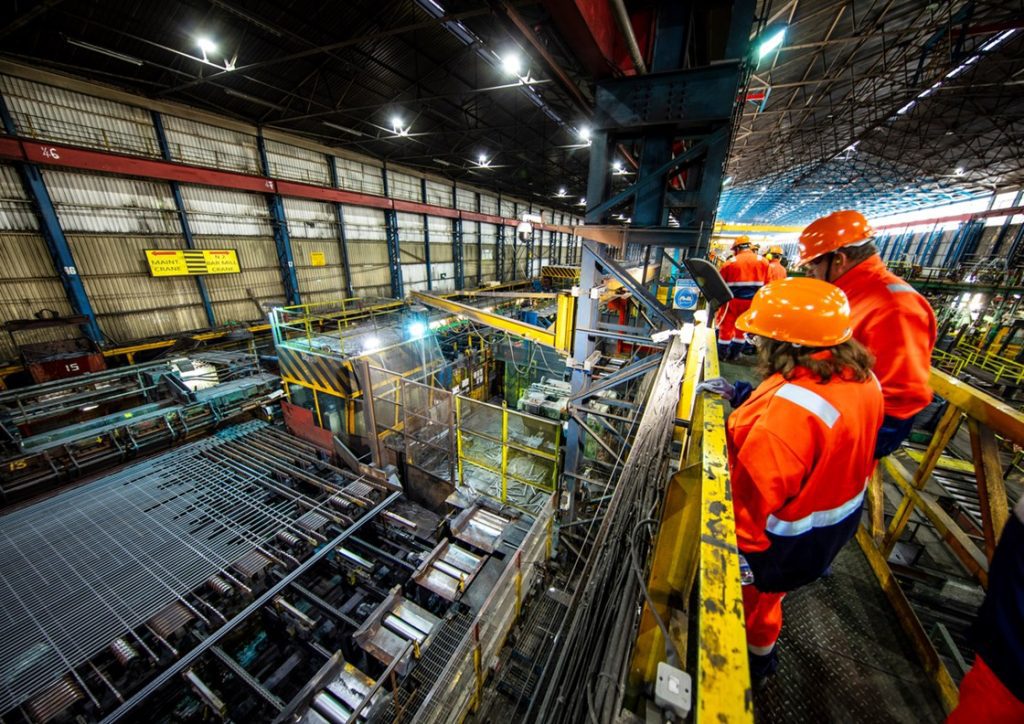
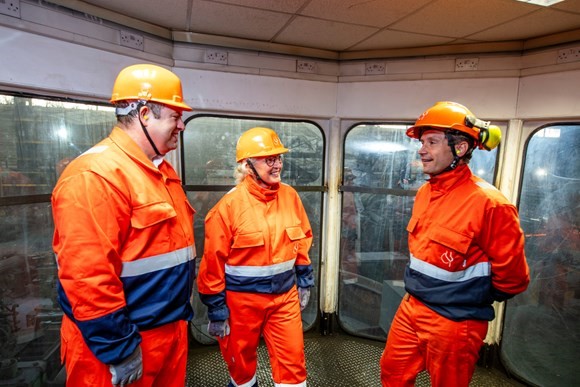
Gabriella Nizam, Head of Sustainability and Strategy at CELSA UK said:
“HS2 recognise the value of CELSA Steel UK’s low carbon steel, and we’re delighted our products are supporting the construction of a railway that will deliver zero carbon journeys for millions of people.
“Our steel is produced in an Electric Arc Furnace, with 98% of our raw material being UK sourced scrap metal. Our commitment to circularity combined with our sustainable production process, establishes us as a leader in environmentally friendly steel production in the UK. While our steel is already low carbon, we are striving to reduce our scope 1 and 2 emissions by 50% by 2030 and becoming a net positive company by 2050.”
The rebar, manufactured in Cardiff, is transported to UK sites managed by British firm ROM GROUP, part of the CELSA GROUP, where it is cut, shaped, and bent to meet the bespoke requirements set by HS2’s construction partners.
Over the last two years, almost 20,000 tonnes of ROM/CELSA’s recycled British steel has helped to build HS2, and the orders keep coming. A 2,000-tonne order is a ‘big deal’ for the 100-strong team working at ROM Ltd.’s Sheffield factory, and around 140,000 tonnes of future orders are already in the pipeline from just one of HS2’s four civils construction partners.
The current scale of demand means ROM Ltd.’s Sheffield Brightside facility is almost exclusively supplying rebar for HS2. The potential to deliver a further 140,000 tonnes from the site, for just one HS2 contractor, would account for around 80% of the site’s total output over the next three years.
Brian Traynor, Managing Director of ROM GROUP said:
“HS2 brought some much needed demand for ROM GROUP during the pandemic, as the orders kept on coming. We’ve subsequently invested over £2million in new equipment at our Sheffield facility to ensure we can maintain demand and sustain future growth.
“There’s a great sense of pride in seeing the steel our workforce has precision cut and bent being used to build the railway, and we hope that continues into the next decade and beyond as HS2 heads north.”
The boost in HS2 orders is also being felt at ROMTECH’s prefabrication facility in Sutton in Ashfield, Nottinghamshire. To date, more than 8,000 tonnes of rebar, manufactured at CELSA’s Cardiff mill, has been welded by a team of 40 specialists to create bespoke prefabricated piling cages each weighing up to ten tonnes and spanning two metre widths.
From the East Midlands factory, each piling cage is labelled and shipped to HS2 construction sites where they are used to strengthen the ground ready for the construction of bridges, viaducts, and tunnels along the route linking London and the West Midlands.
Gareth Stace, Director General of UK Steel, said:
“We are proud that UK-made steel is being used to build HS2. With the potential for two decades more orders, HS2’s investment in UK recycled steel should be emulated by many other major infrastructure projects.
“By buying UK-made steel, HS2 boosts supply chains and jobs across the country, from Wales to Yorkshire. Choosing domestic steel also means HS2 hits corporate social responsibility obligations and cuts even more carbon emissions by transporting the recycled steel by rail.
“HS2 is core to the fabric of the UK steel industry, which has around 40,000 employees and feeds into an extra 50,000 supply chain and community jobs.”
To date, over 3,000 UK-based businesses have won work on HS2 and £23 billion has been contracted into the supply chain. A workforce of nearly 30,000 are in jobs supporting HS2’s vast construction programme, and thousands more are employed in offices and factories across the UK supplying the materials, products and services needed. HS2’s construction programme is a shot in the arm for UK plc, and the Government’s commitment to extend the railway to the north provides a promising future for British industry and future job creation.
Building, Design & Construction Magazine | The Choice of Industry Professionals


